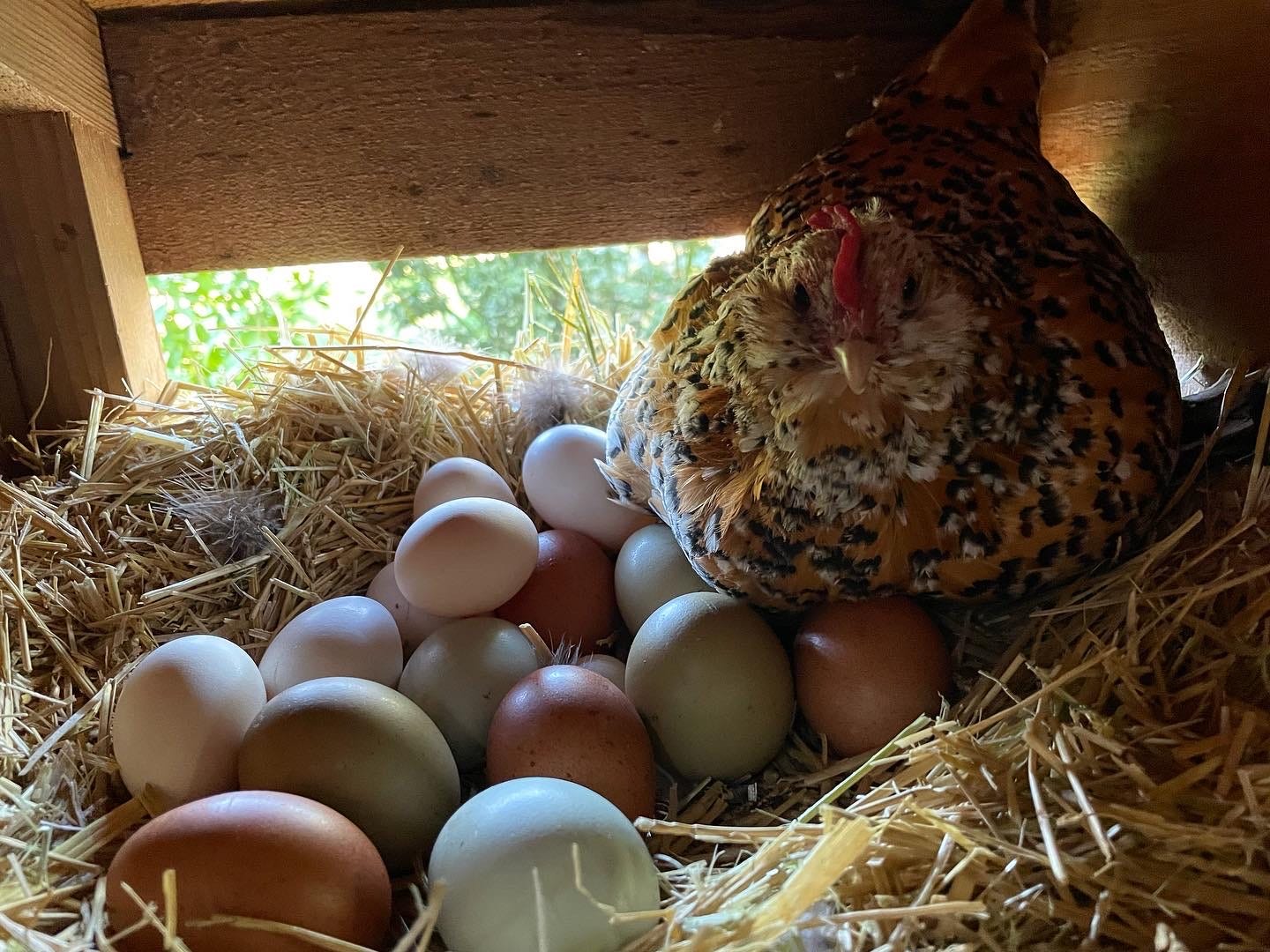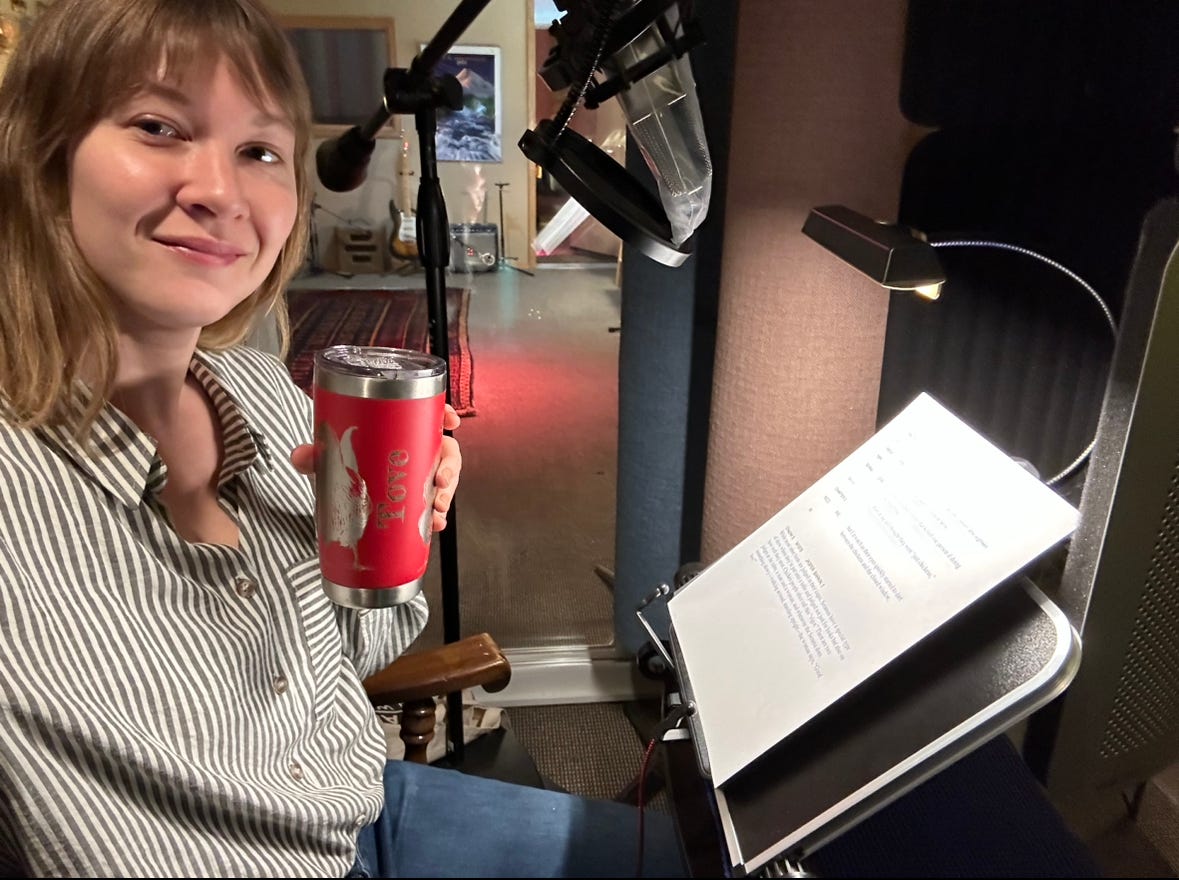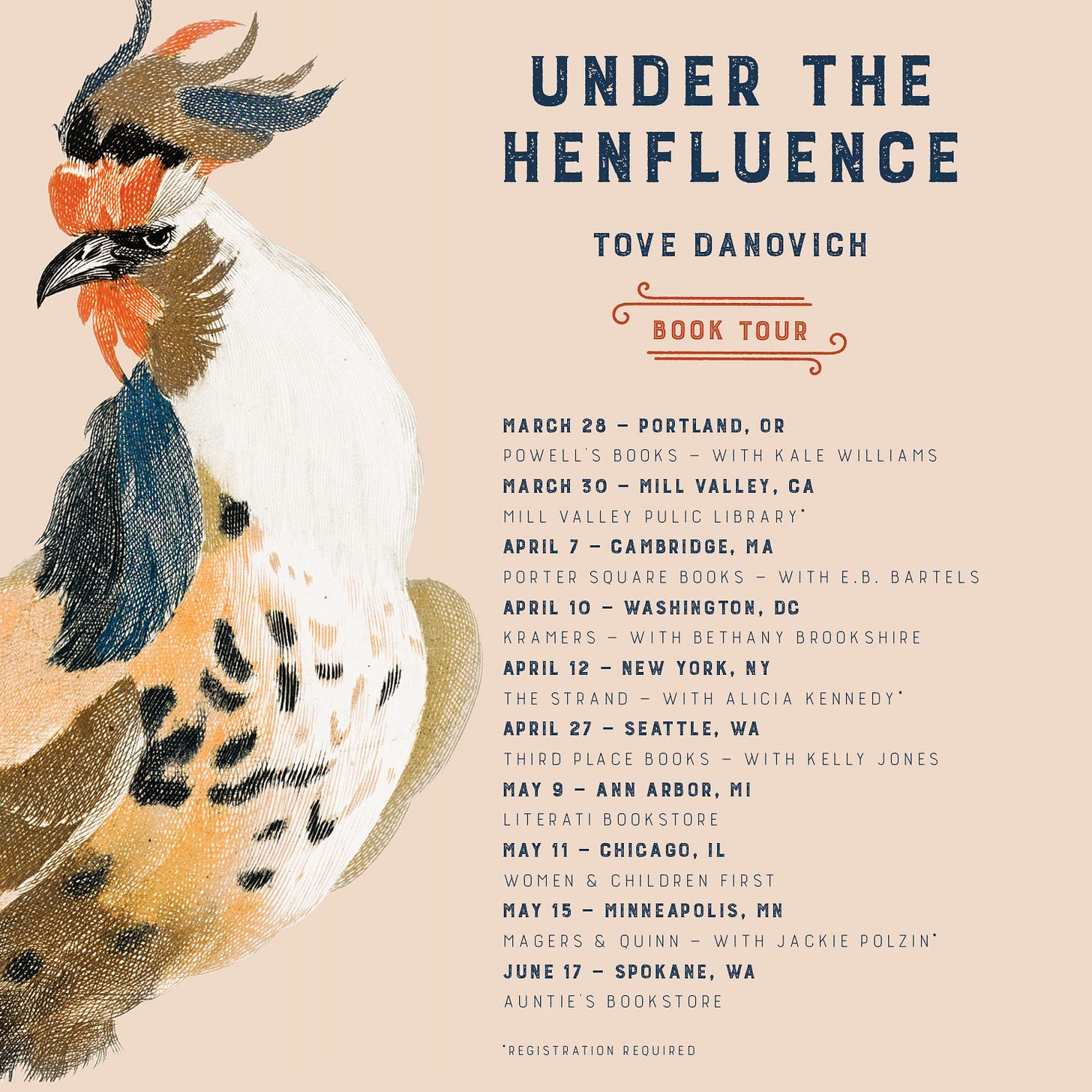Brooding
It's almost spring and eggs are on everyone's minds
It’s springtime and I’ve been thinking a lot about brooding. “Going broody” is what we call it when a chicken—a hen specifically—decides she wants to be a mother and starts sitting on her eggs to incubate them. She lays, or steals, enough eggs to make a giant clutch of them. She pecks out the feathers on her breast to make a brood patch that allows for skin-to-egg contact. The eggs warm better that way. Eggs won’t incubate without heat and it’s always been a bit magic to me. They can simply sit, fertilized and dormant, until a warm body kickstarts the life inside of them. I tried looking up the science of it and came up with a lot of articles on how to incubate chicks but not a lot of answers. One of the articles that didn’t answer my question did describe incubation as “converting the contents of an egg into a chick” which I at least enjoyed.
We do, at least, know a lot about why a hen goes broody. It’s caused by an influx of the hormone prolactin. In mammals prolactin kickstarts the production of breast milk. In chickens, it makes them want to sit on eggs and pluck out their feathers. When an octopus wants to hatch a clutch of eggs we also describe her care of them as “brooding”. She will sit in a cave tending to her eggs for a long time as she slowly withers away, both in body and mind. This period is known as senescence. Senescent octopus stop eating, their movement becomes uncoordinated, wounds stop healing. When the eggs finally hatch, the mother dies. Removing an octopus’ optic glands—an endocrine gland at least somewhat similar to our pituitary glands—will make her stop brooding, feed herself, and live. It’s funny that the mothering instinct in three creatures as different as a hen, a human, and an octopus are all controlled by such similar systems yet the results look different. Nature is a bit like a Lego set. We’re all using the same blocks to make unique creations.
When a hen goes broody she sits on the eggs for the three weeks until they hatch, rarely leaving the nest. The contents of the egg begin to coalesce into a chick. I don’t have a rooster in my flock but my hens have gone broody anyway. They hoard eggs and puff up and scream when the rest of the flock comes close to “their” nest. (Other hens have tried to hatch stranger things than unfertilized eggs.)
My broody hens will stay in the nest long after the 21 days is up, waiting for eggs to hatch even though they never will. It can be a problem. I never know what triggers a hen to go broody. Many domestic hens have had the gene somehow bred out of them—going broody means hens stop laying eggs which isn’t a good business model for egg farmers or hatcheries. Yet a few of my flock have retained the desire to be mothers all the same. Peggy, the head hen and only remaining chicken from my original flock, goes broody often. A few times a year, she fluffs and screams and wants to be a mother and I have to convince her otherwise. We’re going on five years of this pattern and I still can’t tell when it’s about to happen or why she decides that now is the time to raise chicks. But there are other patterns I notice in the flock.
This time of year, I’m watching the flock closely to see if they’re ready to lay eggs again. We ran out of our stored autumn eggs a while back and I’ve been eating a lot of bagels for breakfast rather than buying eggs from the store. I had a few starts and stops of a dozen or two dozen eggs before the hens laying them decided to continue their winter egg-laying break a bit longer. There are signs. Their faces become redder and their combs and wattles swell just a bit as they come into lay again. When they start squatting in front of me, eggs are usually just a couple days away. Squatting is a submissive behavior in hens. Usually they’d do it around a rooster who they’d decided to mate with. Henkeepers like myself use squatting as an opportunity to pick up otherwise recalcitrant hens or perhaps give them a quick pet. I try not to read into our very different understandings of the situation or linger on what the hen might be thinking during these moments.
When I start noticing the hens checking out the nest box, I know eggs are just around the corner. Some hens only go inside when they’re on the verge of laying an egg but others seem to like to check out their surroundings, perhaps move a few pieces of straw here and there, before settling in. We get a lot of false springs in the Pacific Northwest—week-long periods where it’s suddenly sunny and fifty or sixty degrees even though it’s the middle of winter. It happens every year and every year I’m tempted to believe that it’s a sign winter is just over early this year. I can smell the sun on the breeze. The hens, thrilled with the sunshine and warmer weather, lay eggs for a brief moment. Then they stop again until spring—this time for real—knocks on the doorstep.
News from the Coop
I spent a lot of hours last week in a small recording studio reading Under the Henfluence out loud into a microphone that apparently Whitney Houston’s people once asked to borrow for a recording. I don’t know how voice actors do it professionally because reading nonstop is extremely hard work but I am thrilled that people who get the audiobook will be able to hear me reading my own book. It’s so much in my voice that I just couldn’t imagine anyone else narrating it.
We are only six weeks from publication and things are ramping up! I am going to be going on some actual dream podcasts to talk about my book and can’t wait to share with you all when those episodes come out. I love talking about this book and about chickens.
If you want to hear me talk about chickens IN PERSON I will be going on a book tour! I can’t be everywhere but hopefully I will be in at least one city near you. I hope you can make it. If you haven’t preordered Under the Henfluence and want to (one for you, one for your friend who keeps chickens, one for your aunt who keeps talking about chickens but hasn’t gotten them yet), there is still time! It’s available for preorder in the US, UK, Australia, Canada, and a bunch of other places. I am a broken record about this but preorders matter so much for debut authors and show stores that there’s interest in a book about chickens and the joy they can bring us all.
If you need a chicken fix before the next newsletter, you can follow me on Twitter or Instagram.
If you liked this email, please share the newsletter with a chicken or animal lover in your life! As always, email me at underthehenfluence@gmail.com with any tips or comments. See you next month.





Enjoy your writing!
We have had a relatively mild winter in Missouri and my hens began laying eggs in late January. I am looking forward to see how they do in the spring and summer.